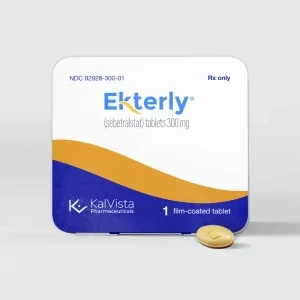
Pfizer has announced promising topline results from the Phase 3 BASIS study evaluating Hympavzi (marstacimab) for adults and adolescents with haemophilia A or B with inhibitors.
Discovered by Pfizer scientists, Hympavzi works through a unique mechanism of action that targets the tissue factor pathway inhibitor (TFPI) rather than replacing missing clotting factors.
By focusing on the Kunitz 2 domain of TFPI, Hympavzi aims to balance bleeding and blood clot formation, offering bleed protection, good tolerability, and straightforward administration.
The study results showed the superiority of once-weekly subcutaneous Hympavzi in improving bleeding outcomes compared to on-demand treatment.
The positive results indicate a significant development for patients, where less burdensome treatment approaches are needed.
Pfizer chief inflammation and immunology officer Michael Vincent said: “These encouraging results demonstrate Hympavzi’s potential to help people living with haemophilia A or B with inhibitors, meeting an important need for patients with antibodies that neutralise most factor-based prophylactic options used to manage bleeding episodes.
“Hympavzi represents Pfizer’s latest contribution in more than 40 years of working to advance haemophilia care, as a generally well-tolerated treatment option that could offer bleed protection with a straightforward, once-weekly subcutaneous administration in a pre-filled pen for patients with inhibitors, if approved in this patient population.”
In the BASIS trial, Hympavzi showed a significant reduction in annualised bleeding rate (ABR) of treated bleeds in patients with severe haemophilia A or B with inhibitors.
Forty-eight patients were treated with Hympavzi over 12 months, showing a 93% reduction in ABR compared to an on-demand intravenous regimen with bypassing agents.
Hympavzi’s efficacy was evident across all bleeding-related secondary endpoints, including spontaneous bleeds, joint bleeds, target joint bleeds, and total bleeds.
It was generally well-tolerated, with no deaths or thromboembolic events reported, aligning with results from the non-inhibitor cohort of the BASIS study and Phase 1/2 trials.
Inhibitors, or antibodies, can develop in people with haemophilia, neutralising factor replacement therapies.
Around 20% of people with haemophilia A and 3% with haemophilia B develop inhibitors, making them unable to continue conventional factor replacement therapies.
Pfizer is conducting further analyses of the full Phase 3 dataset from the inhibitor cohort of the BASIS study.
Also, the company plans to present additional data at upcoming meetings and discuss the findings with regulatory authorities for Hympavzi’s approval in haemophilia with inhibitors.
BASIS study principal investigator Davide Matino said: “Patients with inhibitors tend to face frequent complications and navigating the treatment landscape can introduce complexities and increase disease burden.
“The strong bleed reduction with Hympavzi compared to on-demand treatment in the Phase 3 BASIS study, coupled with its weekly administration method, offers exciting potential for these patients who are in critical need of treatment options.”






